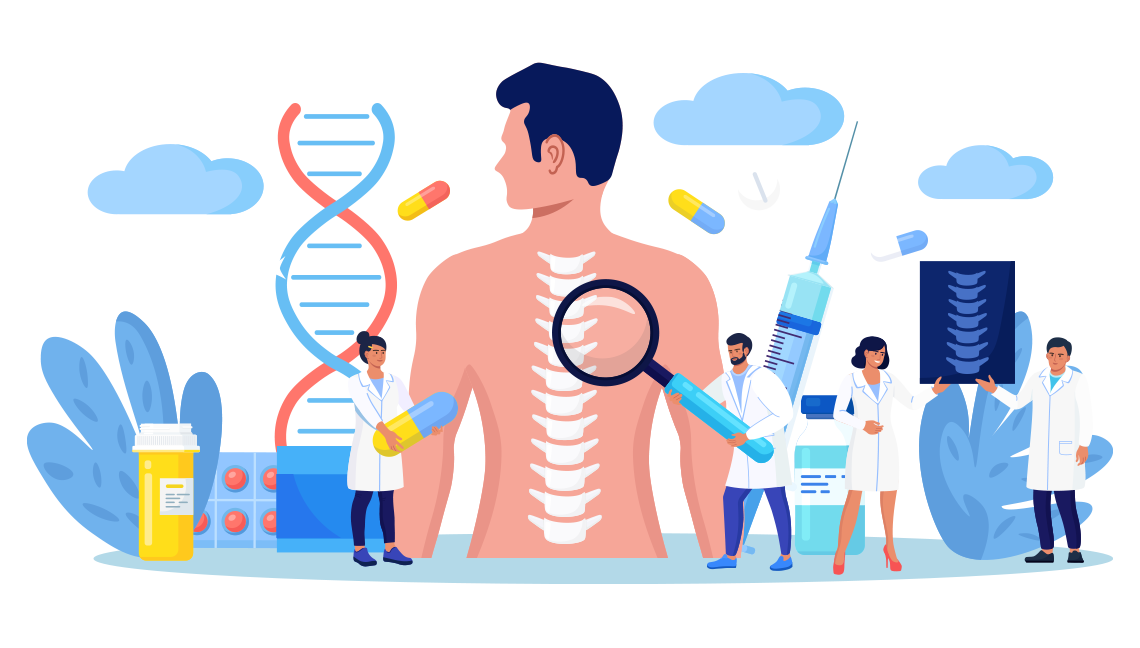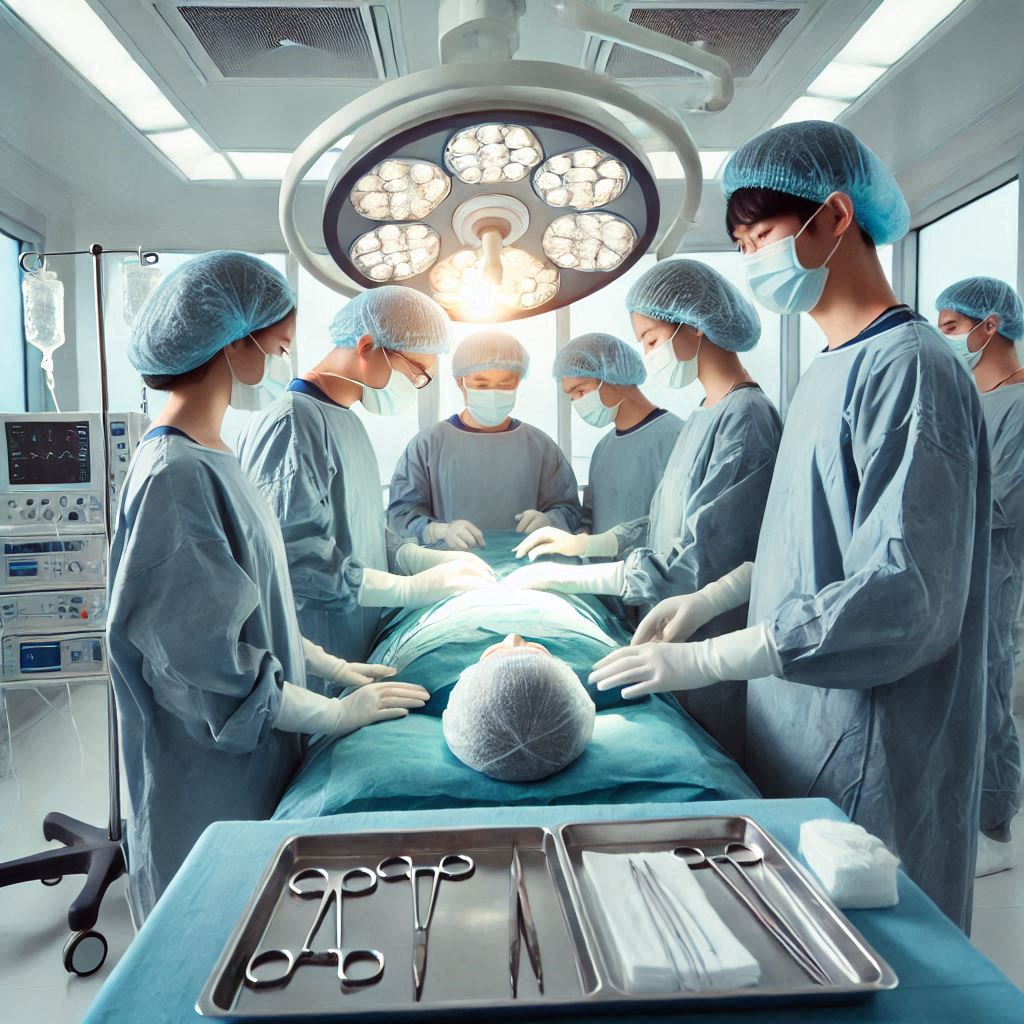This Course Structure is Curated as per the NEP-2020 Guidelines
Course Overview
The B.Sc. Orthopedic Technology program at Malla Reddy Vishwavidyapeeth, Hyderabad, is an undergraduate course designed to train students to assist orthopaedic surgeons in the diagnosis, treatment, and rehabilitation of musculoskeletal conditions, with a focus on technical expertise and patient care.
This program focuses on equipping students with the theoretical knowledge and hands-on skills from 1st semester itself. The curriculum provides students with a comprehensive understanding of orthopaedic anatomy, biomechanics, and the management of fractures, joint disorders, and musculoskeletal injuries. Students will gain practical experience in assisting orthopaedic surgeons during procedures like joint replacements, arthroscopy, and fracture fixation. The program also includes training in the application of orthopaedic devices such as splints, braces, and prosthetics. Additionally, the curriculum emphasizes the use of advanced imaging techniques, orthopaedic equipment, and rehabilitation protocols, ensuring that students are well-prepared for a wide range of tasks in orthopaedic care.
Graduates of this program emerge as ‘Skilled Orthopedic Technologists’, enabling them to pursue further higher studies & do research in Orthopaedic Technology along with plenty of job opportunities globally.

Course Details
Description: 4 Years Degree Program
No. of Seats: 40
No. of Credits: 160 minimum & as specified
- Eligibility
- Curriculum Structure
- Program Outcomes
- Career Enhancement
- Higher Studies
- Job Roles & Progression
The minimum eligibility for B.Sc. Orthopedic Technology is a pass in 10+2 with at least 50% in Physics, Chemistry and Mathematics/Biology from a recognized board (CBSE/ISC) or equivalent.
| Semester | Name of the Subject |
| Semester 1 | Anatomy – I Physiology – I Pathology – I English – I Computer Applications Practical: Anatomy & Physiology – I |
| Semester 2 | Anatomy – II Physiology – II Pathology – II Introduction to Orthopedics English – II Legal Aspects of Healthcare Practical: Anatomy & Physiology – II |
| Semester 3 | Biochemistry – I Microbiology – I Basic Orthopedic Techniques Pharmacology Communicative English Healthcare Administration |
| Semester 4 | Biochemistry – II Microbiology – II Orthopedic Diagnostics Infection Control in Orthopedics Practical – Biochemistry & Microbiology Project Centric Learning (PCL) |
| Semester 5 | Trauma Care and Management Applied Orthopedic Technology Quality Assurance in Orthopedic Procedures Practical – Orthopedic Techniques Internship |
| Semester 6 | Advanced Orthopedic Surgery Assistance Prosthetics and Orthotics Practical – Advanced Orthopedic Techniques Internship |
| Semester 7 & 8 | On-Job Training and Internship Thesis work |
- Orthopedic Procedure Preparation: Preparing the operation room and equipment for orthopedic surgeries.
- Assistance in Orthopedic Surgeries: Assisting orthopedic surgeons in joint replacements, fracture fixations, and other procedures.
- Trauma Management: Handling emergency situations, especially related to bone injuries and fractures.
- Prosthetic and Orthotic Fitting: Training in assisting patients with prosthetic and orthotic devices.
- Infection Control: Implementing infection prevention practices specific to orthopedic settings.
Graduates of B.Sc. Orthopedic Technology can pursue specialized certifications to expand their skills and career opportunities:
- Certification in Orthopedic Trauma Care: Focuses on trauma management and emergency orthopedic care.
- Certification in Prosthetics and Orthotics: Training in fitting and maintaining prosthetic and orthotic devices.
- Advanced Orthopedic Surgical Assistance Certification: Specialized skills in assisting with complex orthopedic surgeries.
- Infection Control Certification in Orthopedics: Ensures adherence to strict infection control protocols in orthopedic settings.
- Healthcare Quality and Safety Certification: Training in quality assurance and patient safety in orthopedic departments.
- Master’s in Orthopedic Technology or Orthopedic Science
- Postgraduate Diploma in Trauma Care
- MBA in Healthcare Management
- Ph.D. in Orthopedic Technology
- Certification in Prosthetics and Orthotics
| Duration | Roles and Responsibilities | Salary Range |
| 0-3 years | Orthopedic Technician, Trauma Care Assistant | ₹3,00,000 – ₹5,00,000 per annum |
| 3-5 years | Senior Orthopedic Technologist, Orthopedic Surgery Assistant | ₹5,00,000 – ₹8,00,000 per annum |
| 5-10 years | Orthopedic Unit Manager, Lead Orthopedic Technician | ₹8,00,000 – ₹12,00,000 per annum |
| 10+ years | Director of Orthopedic Services, Chief Orthopedic Technologist | ₹12,00,000+ per annum |
Note: Salaries vary based on experience, location, and type of healthcare institution.

Fee Structure Per Academic Year - 2025
| Tuition Fee | Miscellaneous Fee | Scholarship | |||
| 125000 ₹ | 10000 ₹ | Above 95% – 125000 ₹ | Above 91% – 62500 ₹ | Between 81-90% – 12500 ₹ | Between 71-80% – 6250 ₹ |
| Tuition Fee | Miscellaneous Fee | Scholarship | ||
| 125000 ₹ | 10000 ₹ | Above 90% – 25000 ₹ | Between 80-90% – 12500 ₹ | Between 70-80% – 6250 ₹ |




